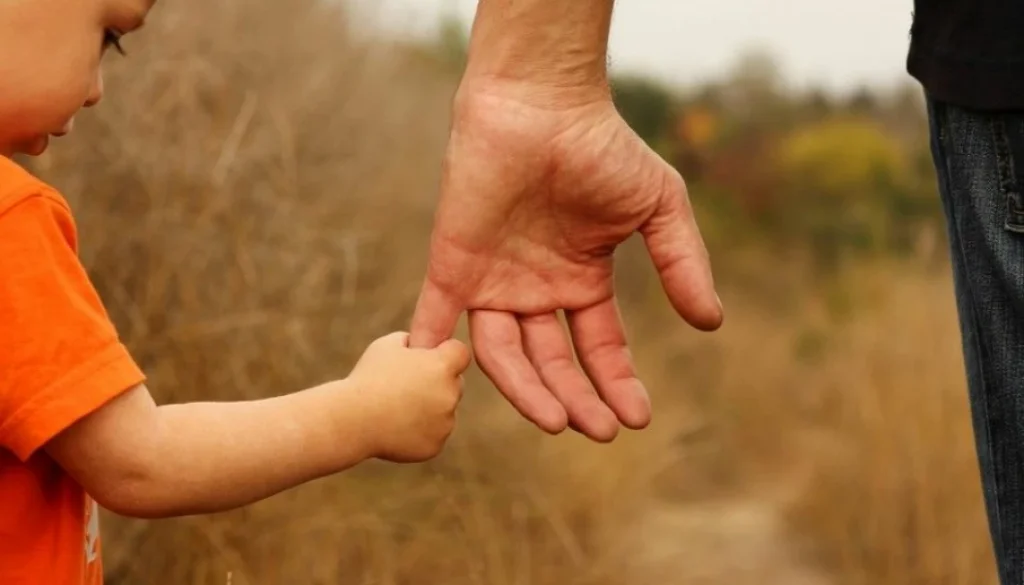These 10 parenting tips are applicable to all ages, regardless of whether your child is a youngster or a parent. These parenting tips, which are based not only on psychological development of children but also reality about the challenges that many adults face, will help build a solid foundation for your child’s mental well-being. Your child will become a self-confident, independent, balanced, and empathetic adult who can face all the challenges of life.
1. Treat your child the same as you treat any other human being.
This approach has many dimensions. I encourage parents to connect with their child from the very beginning.
Always talk to him and show respect.
Don’t tell him to do something, but use politeness when you ask for something.
Give him the freedom to make his own decisions
These parenting tips will have long-lasting effects – self-confidence, decision-making skills, and respect for others.
2. Teach him how to be responsible (to do something, take care of someone, answer for his actions).
This parenting advice will have long-lasting effects on self-esteem and ability to take on responsibilities in managing various life situations.
3. Even in the most difficult situations, tell your child the truth, even if it involves the separation of parents, changes to family life, or any losses.
It starts by explaining to him the meaning of a lie and how it affects others.
This parenting advice can have long-term benefits, such as mutual trust between parents and children, managing anxiety, and increasing tolerance for difficult situations. However, these issues can be overcome.
4. Teach him about privacy.
It is important to protect the child’s privacy at all stages of its development, regardless of its meaning. When the child is between 3-4 and 13-14 years old, it is important to ask permission to enter the room of the child or knock on the door.

Make it a policy to protect your privacy as a parent.
This parenting advice will have long-lasting effects. He will be able to ask for privacy and boundaries to be respected in adulthood, but also to respect privacy needs of others.
5. Learn from him the meaning of limits and how to set them.
Limits should be imposed gently, but firmly, on safety and the safety of others, social interaction, and living with others. This parenting advice will have long-term consequences – the ability for people to live in harmony with each other and the community, and to respect the rules in the educational, professional, and social environments.
6. Expect realistic expectations of your child.
The child is not the improved version of you that must succeed, it is not a dough to match your appearance or ideal model. You are not a trophy to display in front others.
Don’t force him to follow a path he doesn’t want, don’t expect unrealistic performance, and don’t overwhelm him with demands.
This parenting advice has long-term benefits – a person with strong self-esteem (not excused self-esteem but not false self-esteem), who is able to make his own decisions and take responsibility. This positioning allows for a smooth functioning of the parent-child relationship without regrets, resentments, or the desire to leave once you reach adulthood.
7. You should not confine your child to a controlled environment, free from any worries, problems, or influence.
Don’t protect him from everything. Instead, let him face the facts. If he can do it himself, don’t do it for him. Accept that he may experience failures and frustrations.
This parenting advice will have long-lasting effects on self-esteem and self-control. It will also increase your ability to take responsibility for your actions and make decisions.
8. Get to know his friends
The ability to copy the behaviour of friends begins at a young age and often goes beyond adulthood. The importance of the entourage is crucial in the adolescent years. As a parent, it is essential to know who your child spends his time with, what he values, and how he invests his time as friends.
The parent’s access and ability to communicate with the child’s friends must be a key part of the parent-child relationship. This parenting advice will have long-lasting effects on the parent-child relationship of trust and anticipating or managing difficult situations.
9. Your child shouldn’t be held responsible for your mistakes
Don’t make your child the reason for your decisions. You can solve your own problems as a parent and seek out help when necessary. Keep in mind, however, that in most cases, the behavior problems of the children are the result of dysfunctional parents.

This parenting advice has long-lasting effects. Self-confidence and avoiding guilt are two of the benefits. .
10. If the parent-child relationship is not working, ask for help.
You feel you are unable to reach your child, or that he would require specialized assistance. This applies regardless of age. Calling for specialist help on time can be a crucial and vital part of today’s existence and tomorrow’s.
